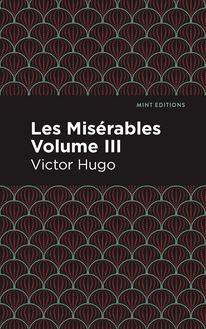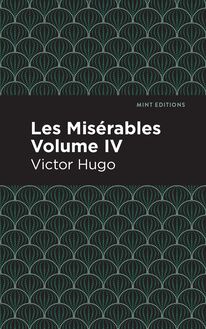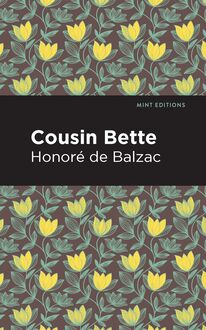-
 Univers
Univers
-
 Ebooks
Ebooks
-
 Livres audio
Livres audio
-
 Presse
Presse
-
 Podcasts
Podcasts
-
 BD
BD
-
 Documents
Documents
-
- Cours
- Révisions
- Ressources pédagogiques
- Sciences de l’éducation
- Manuels scolaires
- Langues
- Travaux de classe
- Annales de BEP
- Etudes supérieures
- Maternelle et primaire
- Fiches de lecture
- Orientation scolaire
- Méthodologie
- Corrigés de devoir
- Annales d’examens et concours
- Annales du bac
- Annales du brevet
- Rapports de stage
La lecture à portée de main
Vous pourrez modifier la taille du texte de cet ouvrage
Découvre YouScribe en t'inscrivant gratuitement
Je m'inscrisDécouvre YouScribe en t'inscrivant gratuitement
Je m'inscrisEn savoir plus
Vous pourrez modifier la taille du texte de cet ouvrage
En savoir plus

Description
Nigel Olifaunt, a Scottish nobleman, travels to England to collect a debt on his late father’s behalf, but is ultimately met with deception and disappointment. The Fortunes of Nigel is one man’s tumultuous journey to keep what’s rightfully his. Following his father’s death, Nigel Olifaunt leaves his native Scotland for London, England. He plans to meet with King James VI to recoup the money his family originally lent to the crown. Despite a legitimate claim, the king is initially reluctant to pay what is owed. He placates Nigel, while other members of his court scheme to steal his estate. With the help of Margaret Ramsay, Nigel uncovers a heinous plot to attack his reputation and fortune. Sir Walter Scott delivers an intricate tale of greed and politics in The Fortunes of Nigel. This exhilarating story is infused with vibrant characters and historical context. It’s one of Scott’s most insightful and complex novels. With an eye-catching new cover, and professionally typeset manuscript, this edition of The Fortunes of Nigel is both modern and readable.
Sujets
Informations
| Publié par | Mint Editions |
| Date de parution | 14 mai 2021 |
| Nombre de lectures | 0 |
| EAN13 | 9781513285498 |
| Langue | English |
| Poids de l'ouvrage | 3 Mo |
Informations légales : prix de location à la page 0,0500€. Cette information est donnée uniquement à titre indicatif conformément à la législation en vigueur.
Extrait
The Fortunes of Nigel
Sir Walter Scott
The Fortunes of Nigel was first published in 1822.
This edition published by Mint Editions 2021.
ISBN 9781513280479 | E-ISBN 9781513285498
Published by Mint Editions ®
minteditionbooks .com
Publishing Director: Jennifer Newens
Design & Production: Rachel Lopez Metzger
Project Manager: Micaela Clark
Typesetting: Westchester Publishing Services
C ONTENTS I II III IV V VI VII VIII IX X XI XII XIII XIV XV XVI XVII XVIII XIX XX XXI XXII XXIII XXIV XXV XXVI XXVII XXVIII XXIX XXX XXXI XXXII XXXIII XXXIV XXXV XXXVI XXXVII
I
Now Scot and English are agreed,
And Saunders hastes to cross the Tweed,
Where, such the splendours that attend him,
His very mother scarce had kend him.
His metamorphosis behold,
From Glasgow frieze to cloth of gold;
His back-sword, with the iron hilt,
To rapier, fairly hatch’d and gilt;
Was ever seen a gallant braver!
His very bonnet’s grown a beaver.
—The Reformation
The long-continued hostilities which had for centuries separated the south and the north divisions of the Island of Britain, had been happily terminated by the succession of the pacific James I. to the English Crown. But although the united crown of England and Scotland was worn by the same individual, it required a long lapse of time, and the succession of more than one generation, ere the inveterate national prejudices which had so long existed betwixt the sister kingdoms were removed, and the subjects of either side of the Tweed brought to regard those upon the opposite bank as friends and as brethren.
These prejudices were, of course, most inveterate during the reign of King James. The English subjects accused him of partiality to those of his ancient kingdom; while the Scots, with equal injustice, charged him with having forgotten the land of his nativity, and with neglecting those early friends to whose allegiance he had been so much indebted.
The temper of the king, peaceable even to timidity, inclined him perpetually to interfere as mediator between the contending factions, whose brawls disturbed the Court. But, notwithstanding all his precautions, historians have recorded many instances, where the mutual hatred of two nations, who, after being enemies for a thousand years, had been so very recently united, broke forth with a fury which menaced a general convulsion; and, spreading from the highest to the lowest classes, as it occasioned debates in council and parliament, factions in the court, and duels among the gentry, was no less productive of riots and brawls amongst the lower orders.
While these heart-burnings were at the highest, there flourished in the city of London an ingenious but whimsical and self opinioned mechanic, much devoted to abstract studies, David Ramsay by name, who, whether recommended by his great skill in his profession, as the courtiers alleged, or, as was murmured among the neighbours, by his birthplace, in the good town of Dalkeith, near Edinburgh, held in James’s household the post of maker of watches and horologes to his Majesty. He scorned not, however, to keep open shop within Temple Bar, a few yards to the eastward of Saint Dunstan’s Church.
The shop of a London tradesman at that time, as it may be supposed, was something very different from those we now see in the same locality. The goods were exposed to sale in cases, only defended from the weather by a covering of canvass, and the whole resembled the stalls and booths now erected for the temporary accommodation of dealers at a country fair, rather than the established emporium of a respectable citizen. But most of the shopkeepers of note, and David Ramsay amongst others, had their booth connected with a small apartment which opened backward from it, and bore the same resemblance to the front shop that Robinson Crusoe’s cavern did to the tent which he erected before it.
To this Master Ramsay was often accustomed to retreat to the labour of his abstruse calculations; for he aimed at improvements and discoveries in his own art, and sometimes pushed his researches, like Napier, and other mathematicians of the period, into abstract science. When thus engaged, he left the outer posts of his commercial establishment to be maintained by two stout-bodied and strong-voiced apprentices, who kept up the cry of, “What d’ye lack? what d’ye lack?” accompanied with the appropriate recommendations of the articles in which they dealt.
This direct and personal application for custom to those who chanced to pass by, is now, we believe, limited to Monmouth Street, (if it still exists even in that repository of ancient garments,) under the guardianship of the scattered remnant of Israel. But at the time we are speaking of, it was practised alike by Jew and Gentile, and served, instead of all our present newspaper puffs and advertisements, to solicit the attention of the public in general, and of friends in particular, to the unrivalled excellence of the goods, which they offered to sale upon such easy terms, that it might fairly appear that the venders had rather a view to the general service of the public, than to their own particular advantage.
The verbal proclaimers of the excellence of their commodities, had this advantage over those who, in the present day, use the public papers for the same purpose, that they could in many cases adapt their address to the peculiar appearance and apparent taste of the passengers. 1 This direct and personal mode of invitation to customers became, however, a dangerous temptation to the young wags who were employed in the task of solicitation during the absence of the principal person interested in the traffic; and, confiding in their numbers and civic union, the ’prentices of London were often seduced into taking liberties with the passengers, and exercising their wit at the expense of those whom they had no hopes of converting into customers by their eloquence. If this were resented by any act of violence, the inmates of each shop were ready to pour forth in succour; and in the words of an old song which Dr. Johnson was used to hum,—
“Up then rose the ’prentices all,
Living in London, both proper and tall.”
Desperate riots often arose on such occasions, especially when the Templars, or other youths connected with the aristocracy, were insulted, or conceived themselves to be so. Upon such occasions, bare steel was frequently opposed to the clubs of the citizens, and death sometimes ensued on both sides. The tardy and inefficient police of the time had no other resource than by the Alderman of the ward calling out the householders, and putting a stop to the strife by overpowering numbers, as the Capulets and Montagues are separated upon the stage.
At the period when such was the universal custom of the most respectable, as well as the most inconsiderable, shopkeepers in London, David Ramsay, on the evening to which we solicit the attention of the reader, retiring to more abstruse and private labours, left the administration of his outer shop, or booth, to the aforesaid sharp-witted, active, able-bodied, and well-voiced apprentices, namely, Jenkin Vincent and Frank Tunstall.
Vincent had been educated at the excellent foundation of Christ’s Church Hospital, and was bred, therefore, as well as born, a Londoner, with all the acuteness, address, and audacity which belong peculiarly to the youth of a metropolis. He was now about twenty years old, short in stature, but remarkably strong made, eminent for his feats upon holidays at foot-ball, and other gymnastic exercises; scarce rivalled in the broad-sword play, though hitherto only exercised in the form of single-stick. He knew every lane, blind alley, and sequestered court of the ward, better than his catechism; was alike active in his master’s affairs, and in his own adventures of fun and mischief; and so managed matters, that the credit he acquired by the former bore him out, or at least served for his apology, when the latter propensity led him into scrapes, of which, however, it is but fair to state, that they had hitherto inferred nothing mean or discreditable. Some aberrations there were, which David Ramsay, his master, endeavoured to reduce to regular order when he discovered them, and others which he winked at—supposing them to answer the purpose of the escapement of a watch, which disposes of a certain quantity of the extra power of that mechanical impulse which puts the whole in motion.
The physiognomy of Jin Vin—by which abbreviation he was familiarly known through the ward—corresponded with the sketch we have given of his character. His head, upon which his ’prentice’s flat cap was generally flung in a careless and oblique fashion, was closely covered with thick hair of raven black, which curled naturally and closely, and would have grown to great length, but for the modest custom enjoined by his state in life and strictly enforced by his master, which compelled him to keep it short-cropped,—not unreluctantly, as he looked with envy on the flowing ringlets, in which the courtiers, and aristocratic students of the neighbouring Temple, began to indulge themselves, as marks of superiority and of gentility.
Vincent’s eyes were deep set in his head, of a strong vivid black, full of fire, roguery, and intelligence, and conveying a humorous expression, even while he was uttering the usual small-talk of his trade, as if he ridiculed those who were disposed to give any weight to his commonplaces. He had address enough, however, to add little touches of his own, which gave a turn of drollery even to this ordinary routine of the booth; and the alacrity of his manner—his ready and obvious wish to oblige—his intelligence and civility, when he thought civility necessary, made him a universal favourite with his master’s customers.
His features were far from regular, for his nose was flattish, his mouth tending to the larger size, and his complexion inclining to be more da
-
 Univers
Univers
-
 Ebooks
Ebooks
-
 Livres audio
Livres audio
-
 Presse
Presse
-
 Podcasts
Podcasts
-
 BD
BD
-
 Documents
Documents
-
Jeunesse
-
Littérature
-
Ressources professionnelles
-
Santé et bien-être
-
Savoirs
-
Education
-
Loisirs et hobbies
-
Art, musique et cinéma
-
Actualité et débat de société
-
Jeunesse
-
Littérature
-
Ressources professionnelles
-
Santé et bien-être
-
Savoirs
-
Education
-
Loisirs et hobbies
-
Art, musique et cinéma
-
Actualité et débat de société
-
Actualités
-
Lifestyle
-
Presse jeunesse
-
Presse professionnelle
-
Pratique
-
Presse sportive
-
Presse internationale
-
Culture & Médias
-
Action et Aventures
-
Science-fiction et Fantasy
-
Société
-
Jeunesse
-
Littérature
-
Ressources professionnelles
-
Santé et bien-être
-
Savoirs
-
Education
-
Loisirs et hobbies
-
Art, musique et cinéma
-
Actualité et débat de société
- Cours
- Révisions
- Ressources pédagogiques
- Sciences de l’éducation
- Manuels scolaires
- Langues
- Travaux de classe
- Annales de BEP
- Etudes supérieures
- Maternelle et primaire
- Fiches de lecture
- Orientation scolaire
- Méthodologie
- Corrigés de devoir
- Annales d’examens et concours
- Annales du bac
- Annales du brevet
- Rapports de stage




















